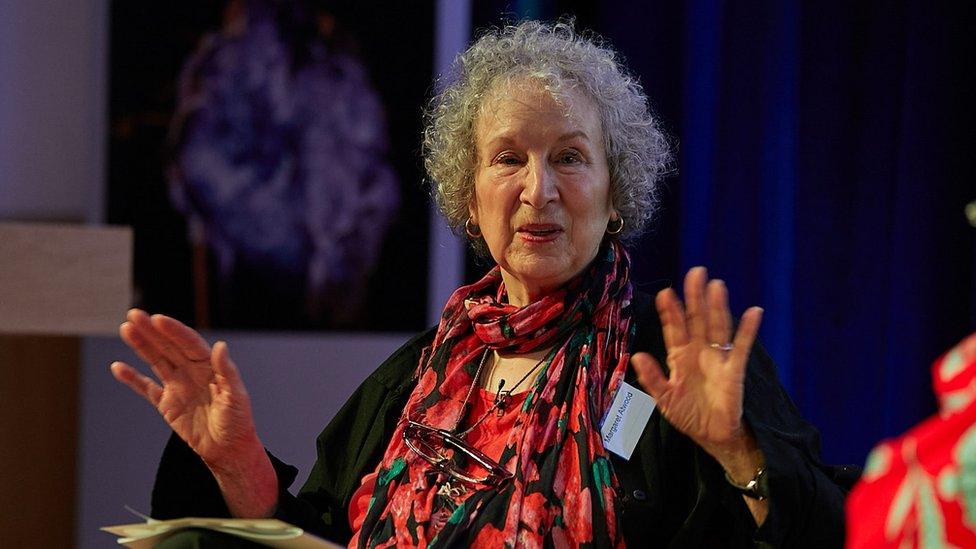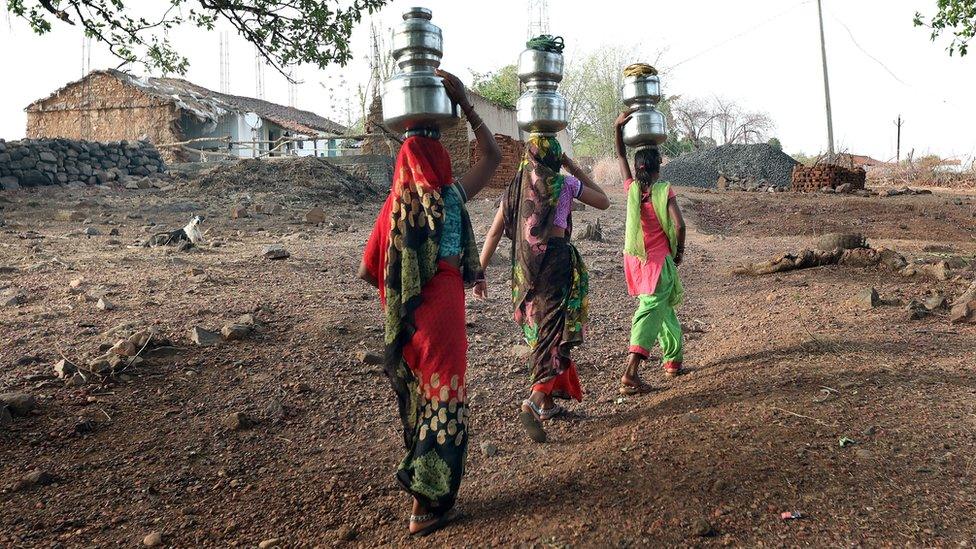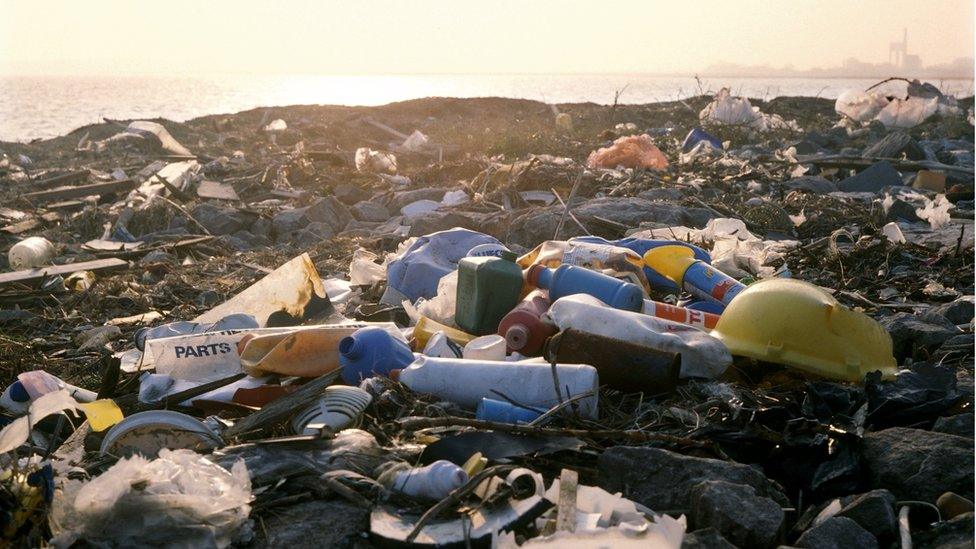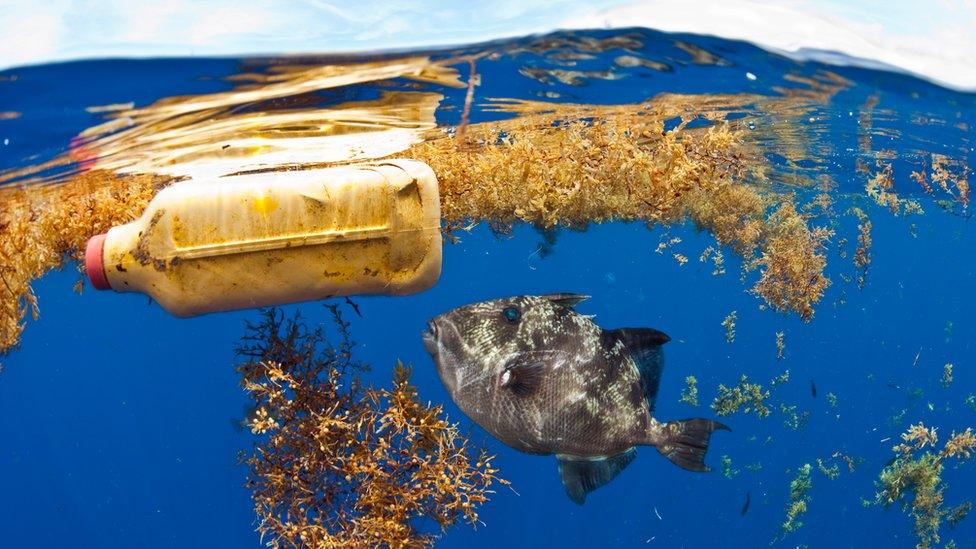Margaret Atwood: 'If the ocean dies, so do we'
- Published

The celebrated author Margaret Atwood has told a conference that humanity's future is linked to the survival of ocean ecosystems.
Commenting on ocean plastic pollution, she said: "Something has to be done... If the ocean dies; end of us."
Ms Atwood was speaking at the Under Her Eye, external summit in London.
The conference, held at the British Library, also heard that climate change disproportionately affects women on a global scale.
In addition, their voices are "too rarely heard" in top level climate change discussions.
Aiming to tackle key environmental issues "from a female perspective", the event hosted a range of policy makers, artists and scientists.
Having written frequently in her novels about the impacts of climate change, Ms Atwood described the conditions which she believes currently disadvantage women.
"In a lot of the world women are in fact the food producers, and they're also the people who care for their families. The hotter it gets, the lower your harvest is going to be. If you have a flood, that's going to wipe you out.
"Women under those situations are going to suffer disproportionately."
Why women?
Morocco's former Minister of Environment Hakima El Haité agreed, citing the time women and girls spend fetching water - estimated to be over 200 million hours per day globally, external.
"The link between climate change, poverty and women is very, very close," she said.

The burden of fetching water often falls on women and children
Green Party MP Caroline Lucas highlighted women's role in grassroots climate activism.
"Women are on the front line of climate change - organising and resisting. Women are an essential part of the solution. [We] have different stories to tell based on our different experience."
"It's not enough to challenge an old narrative… you have to replace it with a better one."
A seat at the table
Christiana Figueres, a former UN diplomat who played a key role in the 2015 Paris agreement, noted that "there are not enough women" around the table in top level climate negotiations.
Yet she feels they have a vital role to play in policymaking.
"The women who are there are fantastic… I think the collaborative nature of the Paris agreement was very much led by the group of women."
Speaking about the upcoming Intergovernmental Panel on Climate Change report due this autumn, Figueres warned that the agreement's goal of limiting global temperature increase at 1.5 degrees Celsius was very much in danger. "[It's] going to say we barely have two seconds before we close the door on that 1.5 degrees."
For Hakima El Haité, the solutions to the gender imbalance are several fold.
"We first have to increase women negotiators.... This is still a male arena."
She is also in favour of social change which would see more women learn how to swim, so they are not caught by flooding when working in agriculture.
"It is not by chance that 80% of the dead we register in climate disasters are women," she commented.

Tampon applicators have been found amongst plastic pollution on the shore of the River Thames
Plastic problems
Also on the agenda were solutions to climate change and environmental issues that women are uniquely equipped to tackle.
Kath Clements, from UK company Mooncup which makes re-usable menstrual cups as an alternative to disposable sanitary products, cited the environmental impact of the "1.5 billion menstrual products flushed in the UK annually".
Other organisations, like the Women's Environmental Network, are moving to campaign for "periods without plastic" - seeking a reduction in the use of disposable menstrual products, and more education around reusable options.
Bloody Good Period, who donate sanitary products to asylum seekers in the UK, are also looking to use more environmentally friendly items says founder Gabby Edlin.

Single use plastic contributes significantly to ocean pollution
On the subject of plastic pollution in the oceans, Margaret Atwood described herself as "all in favour" of banning plastic drinking straws.
"Something has to be done about plastic going into the ocean and it has to be done pretty quick... That's where 60-80% of the oxygen that we breathe comes from," she said.
"We need that ocean to remain alive if we're going to have any hope at all."